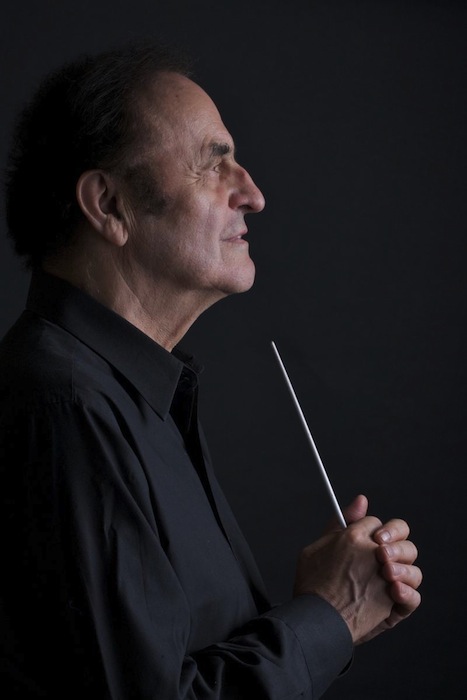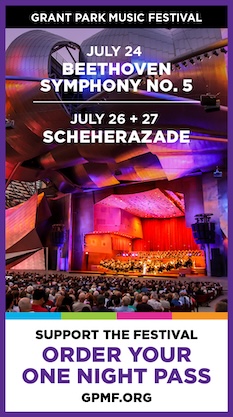Dutoit, CSO bring glowing spiritual warmth to Easter program
One could hardly have assembled a better-balanced Easter week program than that which Charles Dutoit and the Chicago Symphony Orchestra presented Thursday night. The fact that all three works on the program had not been played by the orchestra for a decade or more added to the evening’s pleasures.
Wagner called Parsifal a “stage-consecrating festival play” rather than an opera and his final work offers some of the most extraordinary music in the canon. Dutoit began the evening with the “Good Friday Music” from Act 3 when the melancholy-but-wiser Parsifal returns from his long journey to assume spiritual leadership of the Knights of the Grail. Dutoit led a sensitively shaped reading that conveyed the tender solace and serenity of this sublime music with glowing, pastoral contributions by oboist Alex Klein and clarinetist Stephen Williamson.
Arthur Honegger’s Symphony No. 3 was completed in 1946 in the wake of the epic carnage and destruction of World War II. Though not a programmatic work, the subtitle “Liturgique” indicates the work’s spiritual underpinning and progression out of darkness toward light, as do the movement titles taken from the Roman Catholic Requiem mass.
The Swiss conductor was clearly in synch with this unjustly neglected music of his compatriot. The agitated opening movement (“Dies irae”) went with bristling, nerve-wracked energy under Dutoit’s direction–brass aptly strident and little relief even when the tempo slows down, from the growling trombones.
Dutoit is a master of the long line and in the second movement (“De profundis clamavi”)–which runs nearly a quarter-hour–he kept the music flowing with a natural inevitability. The performance conveyed the requisite contrast with its soothing theme for strings and high winds. The music grows restless again and builds to an outburst before the opening music returns and a fragile flute ascends ever higher at the coda (gloriously played by Stefan Ragnar Hoskuldsson).
The finale (“Dona nobis pacem”) is dominated by an ominous, march-like theme that hurtles forward to a grinding climax, ultimately receding in a glowing, benedictory passage that ends the work in peaceful, somewhat uneasy solace. This impassioned performance conveyed the contrasting sides of Honegger’s striking work with full force and dynamic subtlety under Dutoit’s direction.
Is there a more gentle, consolatory musical vision of life after death than that offered in Gabriel Fauré’s Requiem? So inviting and soothing are the harmonies of the French composer’s 1887 mass that after a performance like the CSO’s Thursday night, even religious skeptics might find themselves fighting the urge to jump into the grave.
In the wrong hands, Fauré’s score can seem unvaried in expression and run the risk of tipping over into saccharine sentimentality. Dutoit stands nearly without peer in French repertory and the idiomatic performance he and the CSO offered was perfectly realized in every respect. Dutoit led playing of such hushed concentration that it even quieted the tubercular Orchestra Hall audience.
The tricky balancing between the light string ensemble, organ, winds and brass, and large chorus were ideally calibrated, while keeping the essential spiritual intimacy of the music to the fore. Even the brief dark moments in Fauré’s mass pass quickly, mere hillocks on the way to heavenly salvation.
The playing of the CSO forces was glorious throughout and the two soloists were on the same level. Matthias Goerne scaled his robust baritone down to the chamber dimensions of the piece and brought a lieder singer’s sensitivity to his solos in the “Offertorium” and “Libera Me.”
Chen Reiss proved ideal vocal casting as well in her brief assignment. The Israeli soprano sang the limpid “Pie Jesu” with a treble-like tonal purity and simple, touching dedication.
It’s getting hard to avoid superlatives when writing about the Chicago Symphony Chorus. Under Duain Wolfe’s direction, the ensemble sang with remarkable finish and luminous tone conveying the cooling balm and warm humanity of this score. The sorpanos were especially inspired, soaring ever higher in Fauré’s mass without any hint of strain.
The program will be repeated 1:30 p.m. Friday and 8 p.m. Saturday. cso.org; 312-294-3000.
Posted in Performances


Posted Apr 15, 2017 at 11:47 pm by Dave
Based on the great reviews, I bought a ticket for tonight’s (Saturday) concert. Very glad I did. It was a beautiful program, with extraordinary performances from start to finish.
I had never heard the Honegger 3rd Symphony before, but it was an amazing piece — very complex, well constructed, and moving. I’m surprised the work hasn’t become part of the standard repertoire.
As for the Faure Requiem, I feel like I’ll never hear a better rendition than that. Bravo to Dutoit, the Orchestra, and the Chorus.